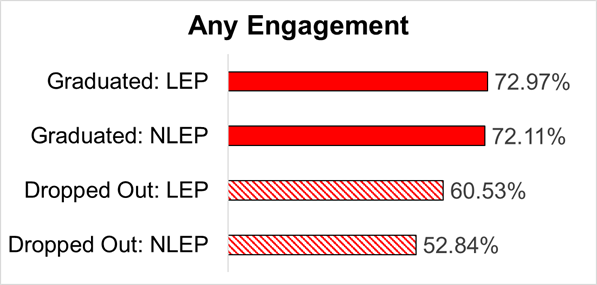Although the CCTS team is spread across three different time zones this week, we share a singular focus: Post-School Survey. Collectively and individually, we’re combing through data from last year’s survey to better understand similarities and differences in both quantitative and qualitative data collected. At the same time, we’re preparing to launch this year’s survey and begin the data collection process again. As a result, this month’s newsletter highlights important dates, updated resources, and recent observations about post-school outcome data.



2022 Post-School Survey (2020-21 leaver year)
Important Survey Dates
- Late May, 2022: Leaver Survey Lists available for review
- June 1, 2022: Post-School Survey opens
- November 1, 2022: Post-School Survey closes, 11:59 p.m.
- January-February, 2023: Post-school outcome reports and presentations published
Quarterly TSF2 User Meetings
In preparation for the 2022 Post-School Survey, CCTS invites you to join quarterly TSF2 User Meetings where we’ll share resources and best practices. Anyone who is new to the survey or looking for a refresher is encouraged to attend.
TSF2 User Meetings are recorded, live captioned, and ASL-interpreted.
- April 27, 2022, 2:30-3:20 p.m.
- Aug 17, 2022, 2:30-3:20 p.m.
- Oct 5, 2022, 2:30-3:20 p.m.
- Feb 8, 2023, 2:30-3:20 p.m.
Visit the Guidance for Educators Page on the CCTS Website
Updated Training Modules
2022 Post-School Survey Training Modules are designed to support school districts in Washington state as they work to complete the annual Post-School Survey. Modules 1 and 2 are recommended for all school and district representatives involved with the survey. Modules 3, 4, and 5 are recommended for review based on Post-School Survey role.
- Module 1: Introduction to the Post-School Survey
- Module 2: TSF2 Basics
- Module 3: Verifying the Leaver Survey List
- Module 4: Conducting the Survey
- Module 5: District Managers
View 2022 Post-School Survey Training Modules in Canvas

Post-School Outcomes, 2019-20 leaver year
Outcomes by ESD and County
Post-school outcomes for 2019-20 leavers are now available on the CCTS website by state, ESD, and county. Data are not published for counties with respondent sizes less than 10. Visit the Post-School Outcome Reports page on the CCTS website to view and download data.
Outcomes by Exit and English Proficiency Categories
Now that 2019-20 Post-School Outcome (PSO) data are published, CCTS is taking a closer look at state-level data by exit categories (Graduated and Dropped out). Based on years of data and research, we know that outcomes are higher for students who graduate than those who drop out.
To determine how we might better support students before they drop out of school, CCTS is examining PSO data by exit status for different demographic categories, starting with English proficiency. While in school, students are categorized with Limited English Proficiency (LEP) or Not Limited English Proficiency (NLEP). Of the 2019-20 special education leavers in Washington state who responded to the Post-School Survey, approximately 13.6% are categorized with LEP, 86.1% with NLEP, and 0.3% have an unknown category.
When we reviewed the data for students with LEP and NLEP by exit categories, we started by looking at engagement rates. Any Engagement means that students met reporting requirements for one of the four engagement outcomes (Higher Education; Competitive Employment; Other Education; or Other Employment).
Among respondents who graduated high school, rates of Any Engagement for respondents with LEP and NLEP were similar (approximately 73% and 72%, respectively). For respondents who dropped out, there was a notable difference. Engagement rates are higher for respondents who dropped out and have LEP than those who dropped out and have NLEP (approximately 61% and 53%, respectively).

Read more about Outcomes by Exit and English Proficiency Categories
CCTS encourages schools to review their PSO data and reach out to our team for support if you have questions. We’ll continue to share our observations and questions about state-level data in future newsletters.

Transition Foundations: Asynchronous Online Training
Transition training materials are available in self-paced, online formats. Each training includes a workbook and a series of PowerPoint modules that can be reviewed individually or with a group (recommended).
- Writing Effective Transition Plans (11 modules)
- Student-Led IEPs (7 modules)
- Developing Job Shadow Experiences (7 modules)
View Professional Development Resources on the CCTS website

